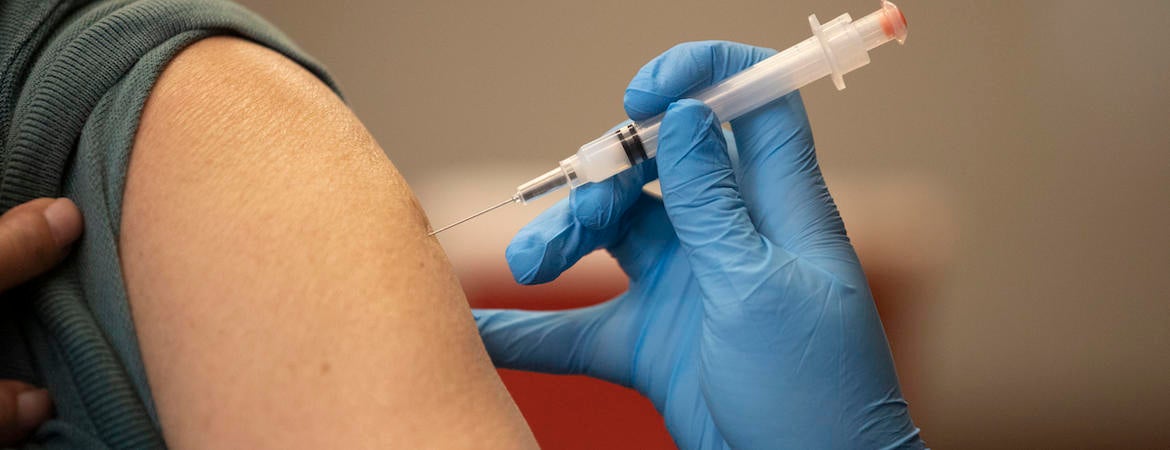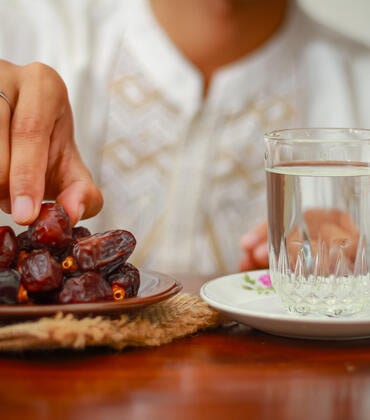
The U.S. has approved updated COVID-19 vaccines. How does this affect you? Should you get this new vaccine? Might it protect against long COVID?
Vaccine expert Dr. David Lo answers some common questions about the new vaccines in the Q&A below. Lo is a distinguished professor of biomedical sciences in the School of Medicine at the University of California, Riverside.
Q. Why do coronavirus strains surge in the fall and winter?
It would be an overstatement to say that the coronavirus strains surge in fall and winter since we only have a year or so experience with the COVID strains, and as they used to say, "One swallow does not a summer make." Other coronavirus strains that are not COVID, that cause common cold symptoms, do tend to be seasonal, and this may relate to both the better survival of the virus on surfaces in colder weather, as well as the easier person-to-person transmission during cold weather when people are squeezed together in close quarters indoors. Seasonal flu, caused by a different virus (influenza), also shows a similar pattern for the same reasons.
Q. Should everyone get the new vaccine?
My own preference is that everybody should indeed get the new updated vaccine for the same reason we always have asked people to get the flu vaccine, as well as the other important vaccinations. Not only will it better protect you from the newer strains that are circulating, but it will also help minimize the spread in the community because you will be less likely to be contributing to the spread. Infection with the newer strains can be relatively mild or even asymptomatic, and spread is far more likely now that most people stopped washing their hands and wearing masks, even when they have symptoms. Remember many of us have elderly and immunocompromised people in our families, so let’s do our best to protect them.
Q. What is the advantage of the new COVID vaccine over the others?
The new vaccine has sequences that target the newer strains of COVID that are circulating in the population, including some that are more able to escape the antibodies produced by the older vaccines. If we continue to let the virus spread and generate new variants, you can expect to see a continuing need for updated vaccines, perhaps as frequently as every year.
Q. How long should you wait after a COVID positive test to get the new vaccine?
It has been suggested that you don’t need a new vaccine for two months after a positive test. However, people can get reinfected, and the appearance of new strains that can escape the protection from older vaccines might argue for getting the new vaccine when you can anyway. Balance the risks; repeated vaccination has minimal if any risks, while reinfection risks vascular damage and long-term brain effects.
Q. Do COVID vaccines, such as the new one, protect against long COVID?
All the vaccines, including the newer version, protect against COVID infection as well as reduce the effects if you do get infected. So that includes relative protection against long COVID.
Q. What are the risks, if any, to taking the flu vaccine and the new COVID vaccine at the same time?
There are no contraindications to taking the flu and COVID vaccines at the same time. If you are older, you might also consider the new respiratory syncytial virus, or RSV, vaccine. The main risk is that since you have only two arms for the shots, you might end up with some sore arms and feeling a bit under the weather for a day or so because for some people the combined effects of multiple vaccinations could make you feel ill for a while. But it would be better than catching any of those viruses.
Q. Why does vaccine protection wane over time?
When you are vaccinated against any specific virus, the lymphocytes in your body that are specific for that virus will be stimulated and proliferate to increase in number, waiting for the next chance to tackle that virus. Booster shots will push to produce even more reactive lymphocytes. However, if the virus never shows up, and there are no more boosters, the lymphocytes that were all ready for a rumble start to calm down, and many just simply go away, making space for lymphocytes reacting to all the other things in your life, such as other viruses, bacteria, and so on. Some infections and vaccinations may induce longer lasting protection than others, but we still need occasional boosters against many of the more serious diseases like tetanus, pneumonia, and shingles.
Q. Why does it seem we will need to get vaccinated for COVID at least once a year, like the flu shot?
COVID, with all the new variants showing up, is starting to show the pattern we see with flu, where every year new variants show up all around the world, and last year’s flu vaccine is just not as protective against the new strains showing up. Assuming the global health surveillance system is kept in business, we will be able to track all these new variants as they appear, and it might be simply convenient enough to get the combination flu/COVID shot, since we all are already getting our regular annual flu shots.



